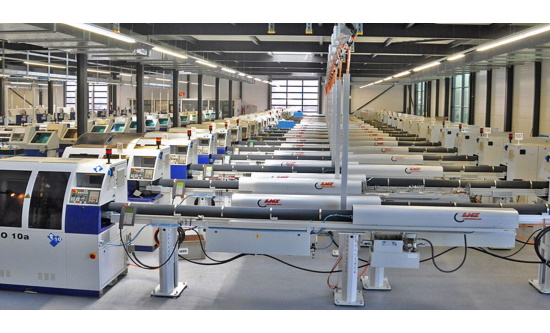As the name implies, continuous improvement is about constantly looking for and acting upon opportunities to make things work better. For manufacturing equipment OEMs, this means continuously communicating with customers to determine how to refine and improve their products to better meet their needs. For CNC shops, it means continuously improving production processes to be more efficient and cost-effective.
Doing so requires both a macro and micro approach. First, attaining an overview of the big picture (macro) from design to completion. Next, the micro approach involves drilling down to the finest details of each phase of the process. Optimally, this means the design engineers and production engineers work hand-in-hand to consider all aspects of a production process by answering such questions as:
- What is the composition of the raw materials (stainless, exotic alloys, ferrous, etc.)?
- What is the workpiece shape and size?
- What is the best way to move the raw material to the work cell?
- Would creating a 3D model of the workpiece help CNC programming?
- What machines are best suited for performing the required operations?
- Should additive as well as subtractive machining be considered?
- What is the most efficient use of fixturing and tooling?
- What type of workholding is required to maintain part stability?
- How will the workpieces be loaded and unloaded?
- Is there a benefit to automating the process by using automatic bar feeders, vacuum unloaders, cobots, robotic machine tenders or other peripherals?
- Can the part be inspected most efficiently in-process or post-process?
- Should the machine tools and peripherals use Ethernet connectivity to share data that reduces changeover times, tracks material usage and captures process data?
- Would automatically variable high-pressure coolant delivery reduce tool wear and extend coolant life?
- Is the chip management system well matched to the materials, sizes and types of chips the process creates?
- Does coolant require filtration to keep harmful debris from damaging pumps, tooling and workpieces?
- How will airborne oil mist and particulates be filtered to maintain a safe, healthy workplace?
- How will the finished product be transported from the workstation to the customer?
Clearly, each of these details requires serious thought and input from a CNC shop’s team members and from suppliers like LNS that have experienced applications experts willing to help. To learn more, contact your local LNS representative, call 513-528-5674 or email: sales@LNS-northamerica.com

